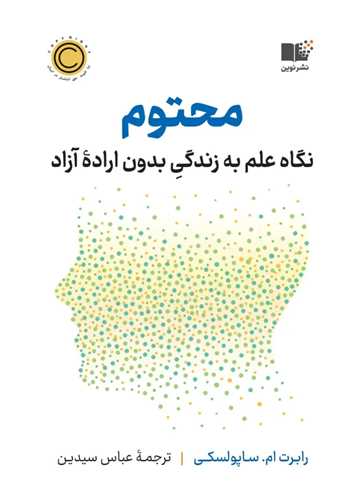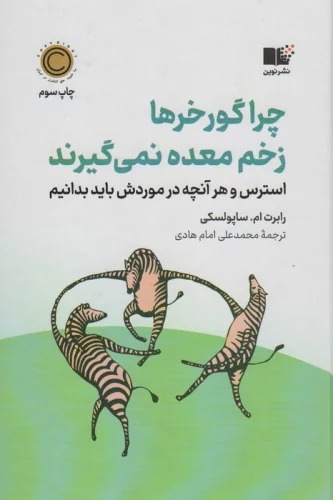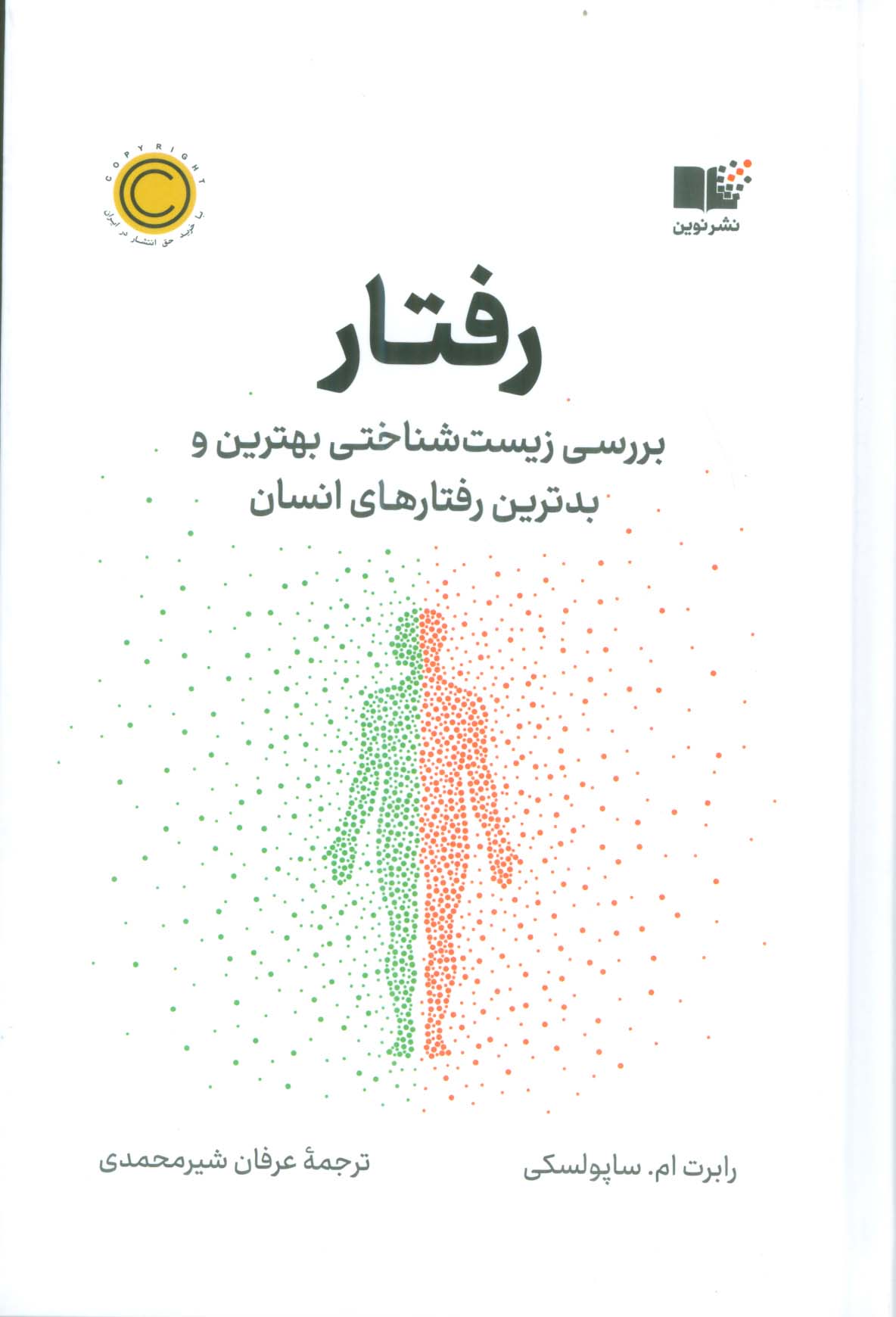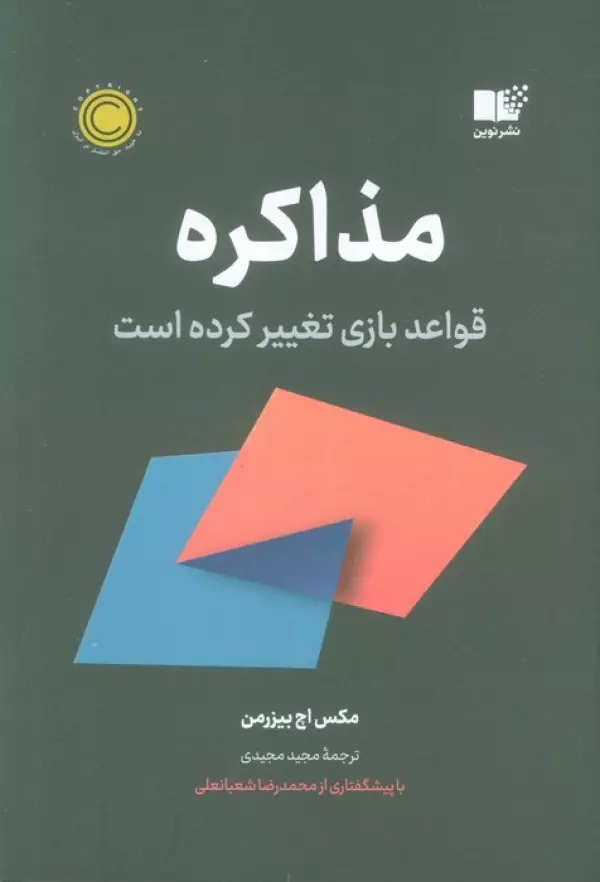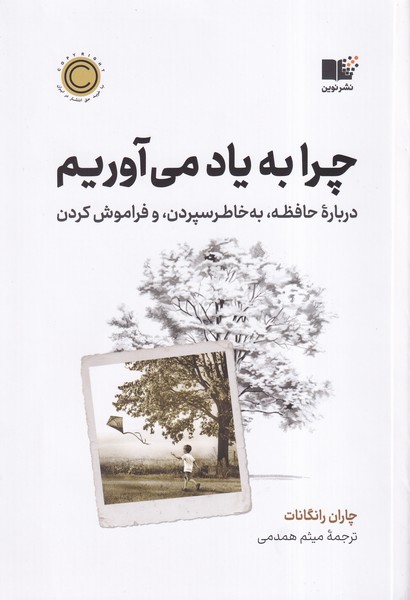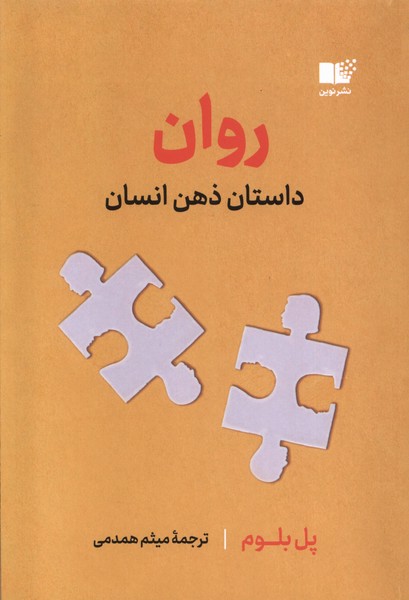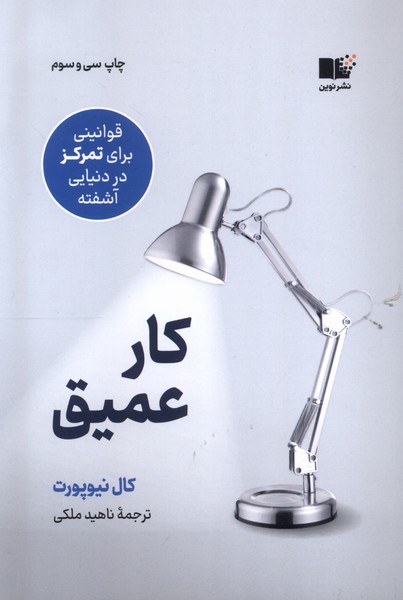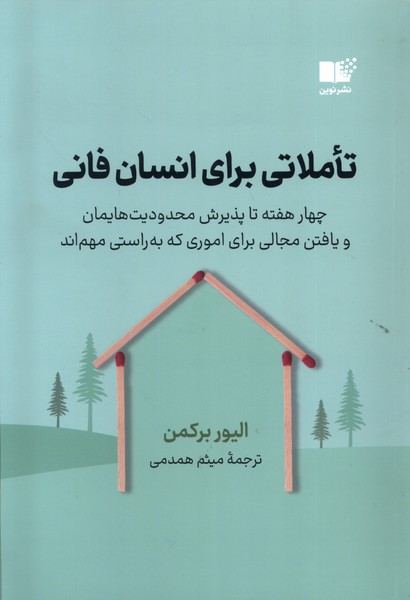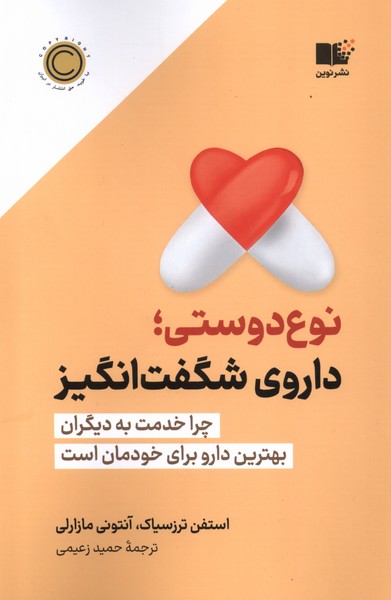Maḥtūm: Persiska (Farsi) 1403
محتوم
18,36 $
Dela
Wishlist
Originaltitel:
Determined: A Science of Life without Free Will
ISBN:
9786225213517
Översättare:
'Abbās Siyyidayn
Förlag:
Nuvin Tawsa'ah
Åldersgrupp:
Vuxen
Sidor:
456
Vikt:
560 g
Produktmått:
14 x 21 x 5 cm
Bokomslag:
Pocketbok
One of our great behavioral scientists, the bestselling author of Behave, plumbs the depths of the science and philosophy of decision-making to mount a devastating case against free will, an argument with profound consequences.
Robert Sapolsky's Behave, his now classic account of why humans do good and why they do bad, pointed toward an unsettling conclusion: we may not grasp the precise marriage of nature and nurture that creates the physics and chemistry at base of human behavior, but that doesn't mean it doesn't exist. Now, in Determined, Sapolsky takes his argument all the way, mounting a brilliant (and in his inimitable way, delightful) full-frontal assault on the pleasant fantasy that there's some separate self telling our biology what to do.
Determined offers a marvelous synthesis of what we know about how consciousness works--the tight weave between reason and emotion, and between stimulus and response, in the moment and over a life. One by one, Sapolsky tackles all the major arguments for free will and takes them out, cutting a path through the thickets of chaos and complexity science and quantum physics, as well as touching ground on some of the wilder shores of philosophy. He shows us that the history of medicine is in no small part the history of learning that fewer and fewer things are somebody's "fault"; for example, for centuries we thought seizures were a sign of demonic possession. Yet as he acknowledges, it's very hard, and at times impossible, to uncouple from our zeal to judge others, and to judge ourselves. Sapolsky applies the new understanding of life beyond free will to some of our most essential questions around punishment, morality, and living well together. By the end, Sapolsky argues that while living our daily lives recognizing that we have no free will is going to be monumentally difficult, doing so is not going to result in anarchy, pointlessness and existential malaise. Instead, it will make for a much more humane world.
more
اثری از رابرت ساپولسکی نویسندۀ کتابهای رفتار و چرا گورخرها زخم معده نمی گیرند
وقتی افراد برای اولین بار با بحث فلسفی در مورد ارادۀ آزاد روبهرو میشوند، ذهنشان با چالش مواجه میشود. افرادی که وجود ارادۀ آزاد را نفی میکنند اعتقاد دارند که هیچکس آنچه را که انجام میدهد، انتخاب نمیکند.
فرض کنید وقتی از کنار یک کافه رد میشوید تصمیم میگیرید که قهوه بگیرید. شما فکر میکنید که میتوانستید تصمیم دیگری بگیرید و هیچ اجباری نبود که شما را به خرید قهوه مجبور کند. اما اگر دقت کنید میبینید که این میل توسط رویدادهایی در مغز شما ایجاد شده و رویدادهای قبلی مغز شما در تعامل با محیط اطرافتان باعث ایجاد این میل شده است. مغز شما هم به دلیل ژن و روش تربیتی که شما داشتهاید به این شکل بوده است و ژن و روش تربیتی شما هم به آشنایی والدینتان برمیگردد. همینطور میتوان به عقب برگشت تا زنجیرهای بدون وقفه از علل مختلف را مشاهده کرد.
اگر ارادۀ ما در انجام کارهایمان به این شکل محتوم باشد، پیامدهای اخلاقی کارهایمان گیجکننده است. ممکن است دیگر نتوانیم افراد را برای کارهایی که کردهاند سرزنش کنیم. برای مثال اگر ما با ژنهایی مثل ژنهای یک قاتل زنجیرهای به دنیا میآمدیم و در همان شرایطی که او تربیت شده رشد میکردیم، احتمالا ما هم مثل او عمل میکردیم. همه چیز به شانس بستگی دارد؛ حتی اینکه ویژگیهای شخصیتی مناسب برای مواجهه با بدشانسی را دارید یا نه.
رابرت ساپولسکی در کتاب محتوم زنجیره علّی که به رفتار انسانی منتهی میشود را بررسی میکند؛ از چند ثانیه و چند دقیقه قبلتر و اتفاقاتی که در ساختار مغز و هورمونها رخ میدهد گرفته تا بررسی ژنها و فرهنگی که فرد در آن رشد کرده است. اگر وضعیت فعلی جهان نتیجه وضعیت قبلی آن باشد، و آن وضعیت هم به نوبۀ خود ناشی از وضعیت پیشین باشد و این زنجیره تا گذشته ادامه پیدا کند، در این صورت به نظر میآید که جزئیات دقیق علت و معلول اهمیت زیادی نداشته باشد.
4 ایده اصلی کتاب محتوم
کتاب محتوم حول محور چهار موضوع اصلی میپردازد که در فصلهای مختلف تشریح میشود.
زندگی شما تحت تأثیر عواملی زیستی و فرهنگی قرار دارد که خارج از کنترل شما هستند.
تصمیمات شما بهطور ناخودآگاه شکل میگیرند.
تصمیمات تحت تأثیر دههها شرطیسازی شناختی و فرهنگی قرار دارند.
آیا مسئولیتپذیری بدون اراده آزاد وجود دارد؟
هر تصمیمی که شما در زندگی میگیرید، از انتخاب شریک زندگی گرفته تا خوردن یک کیک شکلاتی، به دلیل ارادۀ آزاد و انتخاب شما نیست. بلکه مربوط به مجموعهای پیچیده از عوامل زیستی و فرهنگی است که شما کنترلی روی آن ندارید. وقتی شما رفتار خاصی میکنید، مغز شما آن رفتار را تولید میکند و آن هم به این دلیل است که نورونهای مغز شما چند ثانیه قبل از آن رفتار، به شیوه خاصی عمل کردهاند.
علت رفتار نورونهای مغز هم به دلیل محرکی مثل فکر یا احساس به آن روش عمل کرده است و هورمونهای ما باعث شکلگیری محرکی مثل فکر یا احساس بودهاند. این هم به دلیل تجربیاتی است که مغز شما در سنین مختلف رشد مثل نوجوانی، کودکی و دوران جنینی به وجود آورده است. تمام این موارد هم نتیجۀ ژنهای شما و فرهنگ و جامعهای است که در آن متولد شدهاید که آن هم تحت تأثیر فشارهای اکولوژیکی و تکاملی قرار گرفته است که در وهله اول فرهنگ را ایجاد کردهاند؛ زنجیرهای بیپایان از عوامل مختلف.
more

